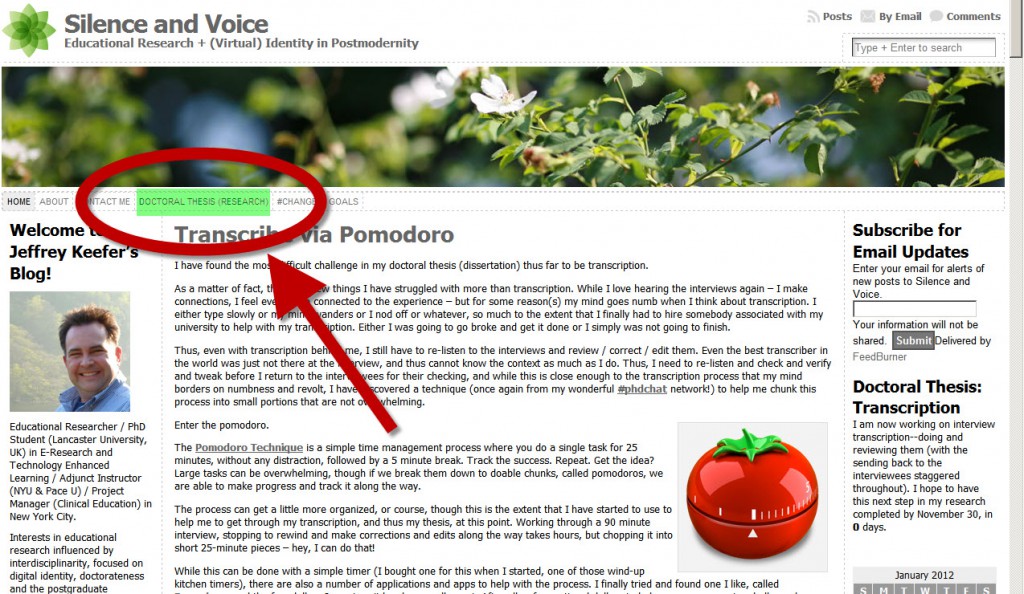
Have you ever had your work rejected for a conference? Something about that term, REJECTION, when it has to do with our research or professional representation of our work can be difficult to take, and while I cannot pretend it gets easier over time, a tenured professor once said to me that everybody in the room, including all those big-named speakers up there, have had their work rejected at some point.
I suppose that is some comfort. Misery does love company, eh?
While I tend to submit my work to academic conferences more than purely professional ones, it is this area in which I am primarily musing right now, though having presented at purely practitioner or professional events before, I think many of the same issues apply.
I suppose one of the first thoughts that comes to mind when this happens, at least to me, is either, “Those idiots just don’t get my work. Probably reviewed by some unfeeling number cruncher who doesn’t understand the nuances of qualitative inquiry” or “I didn’t really want to go to that conference anyway.”Nothing like a defensive response, generally much easier than considering that perhaps my work really was not that well-written or significant; that sort of thinking, like stages of grief or recovery, often comes later.
To be fair, the rejection letter or email usually does not use the term “rejected,” which I think is good. Instead, they tend to try to soften the blow by using a more appreciative form of verbiage, something like “Thank you for submitting a proposal for XXX. We received a large number of high quality and excellent applications, and due to limitations in the conference venue and an increased amount of competition, we were not able to accept all of them. Unfortunately your proposal was not among those selected.” Then comes the “better luck next year” recommendation, “We encourage you to submit your work again next year.”
Wait, are you saying I should still put the effort into dealing with your group again? I suppose this depends on many factors, such as how valuable the conference is in the field and what the real rejection rate is (if there is really a way to know this). Perhaps the proposal was not articulated well, or it was not yet fully formed; there are good reasons for this, and while conferences exist only as long as there are valuable presentations being made, it is in everybody’s best interest to consider improving or otherwise creating work anew to submit again. Onward and upward.
Back to the rejection letter.
Finally, the offer I always find the strangest. “We hope you will still plan to attend the XXX conference. Here is a link to it . . . .” Did I read that right? Did you just say my work is not good enough to present and discuss at your conference, though you still want me to pay to attend anyway, even without that one line I would get on my CV? What, so I can see how it should be done?! Do you just want my money? Perhaps you fear that conference acceptance or rejection rates may affect conference attendance, otherwise known as the profit factor?
Yes, I know, attending conferences to hear new ideas and network and feel a sense of being part of a field is valuable, though with the increase in social media and liveblogging, is that really as necessary as it once was IF I am not attending to present and receive feedback on my work? I suppose this depends on a lot of factors, such as who the keynotes are, does the entire department attend and it is good to be seen and be a part of this, where the venue is, and who is paying.
Yes, who is paying for all this is often the most important, though strangely handled, issues in conferences. For those of us who are self-funded, attending a conference when we present a paper is often enough of a challenge to manage, while it is totally out of the question without work to present. In the ideal world this may not be as much of an issue as it is in the real world, but it often costs a lot of time and money to attend a conference, and I often think that all that effort pays off with a good discussion around my work and how to improve it.
Of course, the initial acceptance can be seen as part of that discussion, as there is commonly feedback about the work to help improve it. For those conferences who do not provide anything other than a “No,” it somehow seems to imply that you did not meet our standard, though we will not tell you what that standard is and thus you are left completely in the dark. How can we improve without direction? It is that working on the dark that led to the rejection in the first place.
I am writing this post at the end of a week where I had a paper accepted and one rejected for different conferences. I will speak about the accepted one in my next post (which may be a little more upbeat and less tongue-in-cheek. Perhaps).
I know the value of peer review, which often has to be navigated through managing conference attendance and expected percentages of submit-to-accept ratios, and while I have been on all sides of this issue (including reviewing some really good and really bad work over the years), I have not seen many people speak about this issue before. I went into all this blindly, and hope that my musing about conference paper or abstract acceptance or rejection here may be useful to others. If nothing else, we are all in the same boat, so to speak.


 Enter the pomodoro.
Enter the pomodoro.
 Have you ever had your work rejected for a conference? Something about that term, REJECTION, when it has to do with our research or professional representation of our work can be difficult to take, and while I cannot pretend it gets easier over time, a tenured professor once said to me that everybody in the room, including all those big-named speakers up there, have had their work rejected at some point.
Have you ever had your work rejected for a conference? Something about that term, REJECTION, when it has to do with our research or professional representation of our work can be difficult to take, and while I cannot pretend it gets easier over time, a tenured professor once said to me that everybody in the room, including all those big-named speakers up there, have had their work rejected at some point.